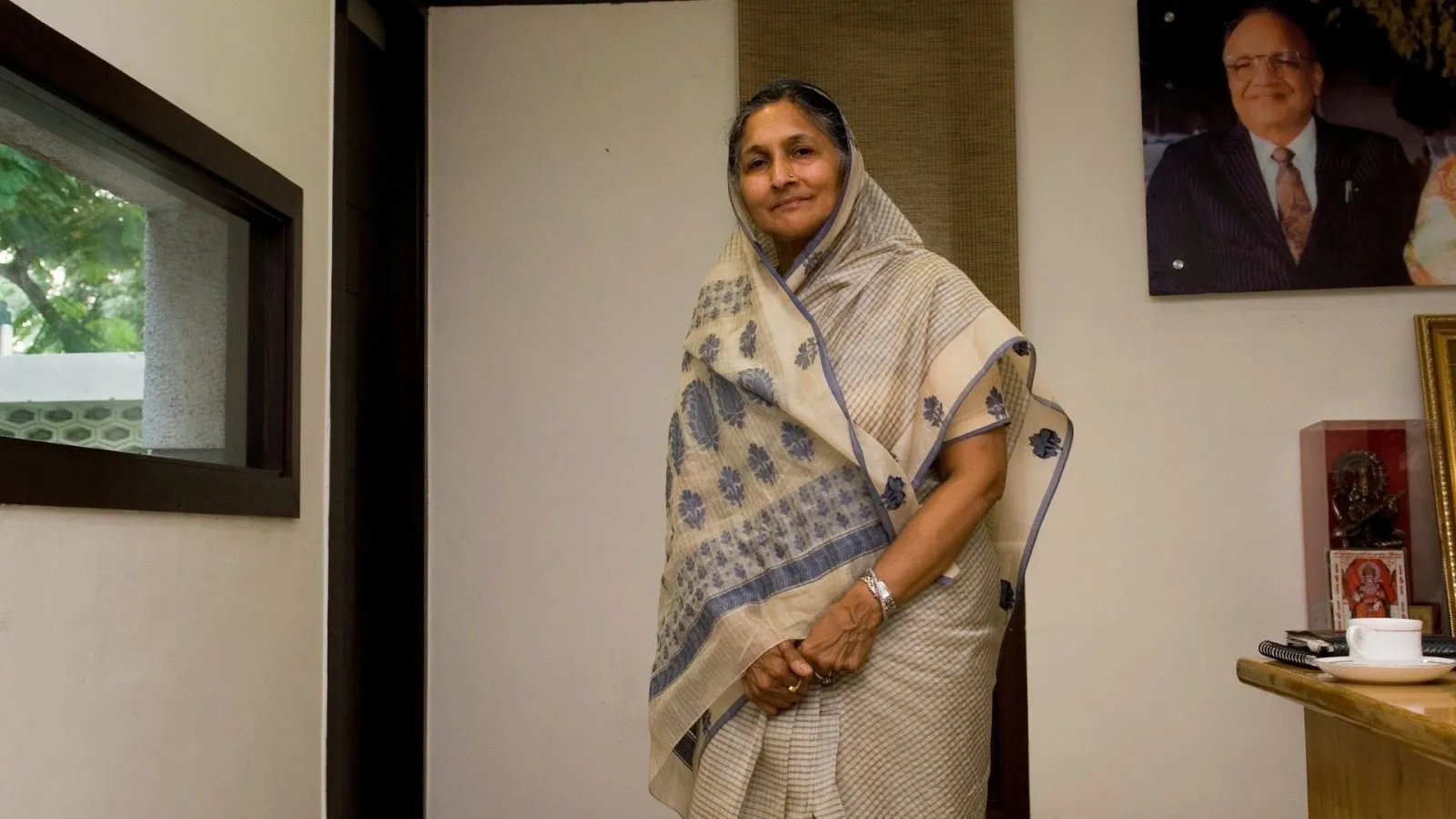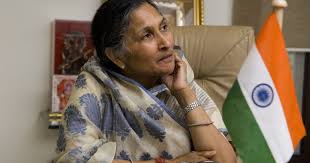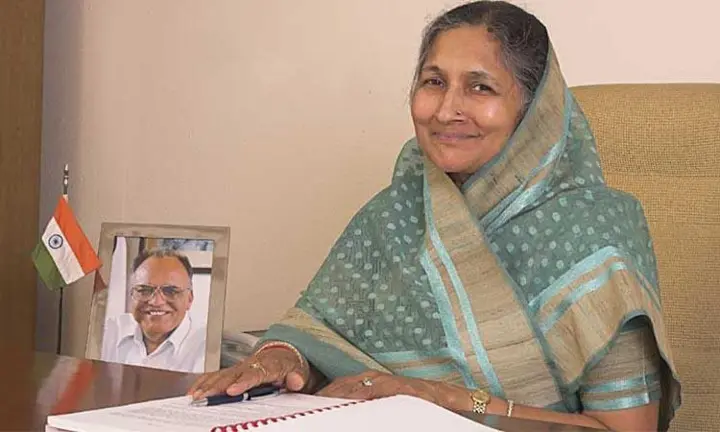Savitri Devi Jindal was born on March 20, 1950, in Tinsukia, Assam. In the 1970s, she married Om Prakash Jindal, the founder of the Jindal Group. Savitri has been chairing the Jindal Group for 16 years.
This was after her husband O.P Jindal who died in a helicopter crash in 2005.She didn’t step out or have had any career for 36 years before becoming the chairperson of Jindal Group.
Some of the flagship companies of the group are Jindal Saw, JSW Steel, Jindal Stainless Steel, and Jindal Steel and Power.
She never even attended college. In typical style, she never even knew how much her billionaire husband made, because she never asked him. She increased the group's turnover by four times after she took over as chairperson, and the conglomerate established leadership positions in various businesses.
She is affectionately known by the name: Mata Ji. Soon after venturing into the business, she entered politics by joining the Haryana government, representing the Indian National Congress. She has had a successful career as a politician and a social activist when she entered the corporate sector. She also serves as the president of Agroha's Maharaja Agrasen Medical College.
In 2005, Jindal was elected to the Haryana Vidhan Sabha from Hisar constituency, which was earlier represented by her late husband for a long time.
Akhil Bhartiya Terapanth Mahila Mandal awarded her the Acharya Tulsi Kartritva Puraskar in 2008.
In 2009, she was re-elected to the constituency and was appointed as the cabinet minister in the Haryana Government on 29 October 2013. She was a member of the Haryana Vidhan Sabha from the Hisar & a minister in the Haryana government.
In 2006, she was appointed minister of state for revenue, disaster management, rehabilitation, & housing. in 2013, she was appointed minister for urban local bodies. In the 2014 Haryana assembly elections, she was defeated for the seat.
She is the world's sixth wealthiest mother and supports the public work that her husband began. Savitri Jindal is personally involved in the group's philanthropic activities. She is involved in the construction and successful operation of schools and medical institutions.
The steel baroness devotes a lot of time to social welfare, poverty alleviation in various parts of India, universal healthcare, and environmental protection. She follows a tradition that wherever she set up a factory, she also set up a school and hospital.
In Forbes' rich list, she was ahead of Biocon CEO Kiran Mazumdar-Shaw ($3.6 billion) and Smita Crishna-Godrej ($2.9 billion). Her fortune is also equal to 469 percent of the total fortunes of the world's top 500 richest persons. Savitri Jindal is also the matriarch of the Jindal family and a homemaker with nine children.

Women make up a small percentage of India's billionaire club, and their fortunes lag well behind those of the top 100 men. Savitri stands out from the crowd indeed. She has been ranked in the top 20 in terms of personal wealth in India by Forbes in March, making her the country's richest lady. She was appointed to the state government as the minister for urban local bodies in 2013. She avoids the hustle and bustle of business by spending three days a week in the Hisar constituency.
Savitri Jindal inherited her husband’s shareholding in the group. Her share in each company will later pass on to the son heading it.
The biggest assets of the group are overseen by her son Sajjan Jindal, who runs JSW Steel. She is worth $6.6 billion but continues to receive a government pension of ~90,000 each month.
India's richest woman and the lady behind steel giant Jindal group of companies: Savitri Devi Jindal